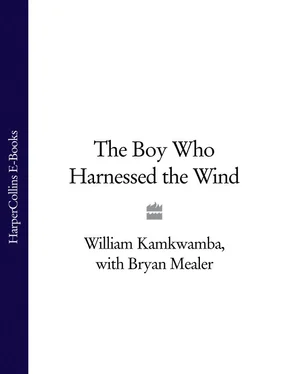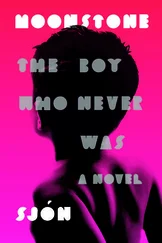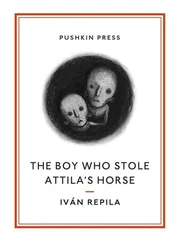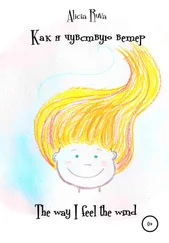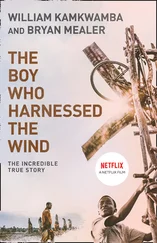The sing’anga was the witch doctor.
I’d swallowed the gum long before. Now the sweet, lingering memory of it soured into poison on my tongue. I began to sweat; my heart was beating fast. Without anyone seeing, I ran into the blue gum grove behind my house, leaned against a tree, and tried to make myself clean. I spit and hocked, shoved my finger into my throat, anything to rid my body of the curse. I came up dry. A bit of saliva colored the leaves at my feet, so I covered them with dirt.
But then, as if a dark cloud had passed over the sun, I felt the great eye of the wizard watching me through the trees. I’d eaten his juju and now his darkness owned me. That night, the witches would come for me in my bed. They’d take me aboard their planes and force me to fight, leaving me for dead along the magic battlefields. And as my soul drifted alone and forsaken above the clouds, my body would be cold by morning. A fear of death swept over me like a fever.
I began crying so hard I couldn’t move my legs. The tears ran hot down my face, and as they did, the smell of poison filled my nose. It was everywhere inside me. I fled the forest as fast as possible, trying to get away from the giant magic eye. I ran all the way home to where my father sat against the house, plucking a pile of maize. I wanted to throw my body under his, so he could protect me from the devil.
“It was me,” I said, the tears drowning my words. “I ate the stolen gum. I don’t want to die, Papa. Don’t let them take me!”
My father looked at me for a second, then shook his head.
“It was you, eh ?” he said, then kind of smiled.
Didn’t he realize I was done for?
“Well,” he said, and rose from the chair. His knees popped whenever he stood. My father was a big man. “Don’t worry. I’ll find this trader and explain. I’m sure we can work out something.”
That afternoon, my father walked eight kilometers to a place called Masaka where the trader lived. He told the man what had happened, about the herd boys coming by and giving me the stolen gum. Then without question, my father paid the man for his entire bag, which amounted to a full week’s pay.
That evening after supper, my life having been saved, I asked my father about the curse, and if he’d truly believed I was finished. He straightened his face and became very serious.
“Oh yes, we were just in time,” he said, then started laughing in that way that made me so happy, his big chest heaving and causing the wooden chair to squeal. “William, who knows what was in store for you?”
MY FATHER WAS STRONG and feared no magic, but he knew all the stories. On nights when there was no moon, we’d light a lamp and gather in our living room. My sisters and I would sit at my father’s feet, and he’d explain the ways of the world, how magic had been with us from the beginning. In a land of poor farmers, there were too many troubles for God and man alone. To compensate for this imbalance, he said, magic existed as a third and powerful force. Magic wasn’t something you could see, like a tree, or a woman carrying water. Instead, it was a force invisible and strong like the wind, or a spider’s web spun across the trail. Magic existed in story, and one of our favorites was of Chief Mwase and the Battle of Kasungu.
In the early nineteenth century, and even today, the Chewa people were the rulers of the central plains. We’d fled there many generations before from the highlands of southern Congo during a time of great war and sickness, and settled where the soil was reddish black and fertile as the days were long.
During this time, just northwest of our village, a ferocious black rhino began wreaking terror across the land. He was bigger than a three-ton lorry, with horns the length of my father’s arms and points as sharp as daggers. Back then, the villagers and animals shared the same watering hole, and the rhino would submerge himself in the shallows and wait. Those visiting the spring were mostly women and young girls like my mother and sisters. As they dipped their pails into the water, the rhino would attack, stabbing and stomping them with its mighty hooves, until there was nothing left but bloody rags. Over a period of months, the feared black rhino had killed over a hundred people.
One afternoon, a young girl from the royal Chewa family was stomped to death at the spring. When the chief heard about this, he became very angry and decided to act. He gathered his elders and warriors to make a plan.
“This thing is a real menace,” the chief said. “How can we get rid of it?”
There were many ideas, but none seemed to impress the chief. Finally one of his assistants stood up.
“I know this man in Lilongwe,” he said. “He’s not a chief, but he owns one of the azungu ’s guns, and he’s very good at magic. I’m certain his magical calculations are strong enough to defeat this black rhino.”
This man was Mwase Chiphaudzu, whose magic was so superior he was renowned across the kingdom. Mwase was a magic hunter. His very name meant “killer grass” because he was able to disguise himself as a cluster of reeds in the fields, allowing him to ambush his prey. The chief’s people traveled a hundred kilometers to Lilongwe and summoned Mwase, who agreed to assist his brothers in Kasungu.
One morning, Mwase arrived at the watering hole well before the sun. He stood in the tall grass near the shores and sprinkled magic water over his body and rifle. Both of them vanished, becoming only music in the breeze. Minutes later, the black rhino thundered over the hill and made his way toward the spring. As he plunged his heavy body into the shallows, Mwase crept behind him and put a bullet into his skull. The rhino crumpled dead.
The celebrations began immediately. For three days, villagers from across the district feasted on the meat of the terrible beast that had taken so many lives. During the height of the festivities, the chief took Mwase to the top of the highest hill and looked down where the Chewa ruled. This hill was Mwala wa Nyenje, meaning “The Rock of the Edible Flies,” named after the cliffs at its summit and the fat delicious flies that lived in its trees.
Standing atop the Rock of the Edible Flies, the chief pointed down to a giant swath of green earth and turned to Mwase.
“Because you killed that horrible and most feared beast, I have a prize for you,” he said. “I hereby grant you power over this side of the mountain and all that’s visible from its peak. Go get your people and make this your home. This is now your rule.”
So Mwase returned to Lilongwe and got his family, and before long, he’d established a thriving empire. His farmland produced abundant maize and vegetables that fed the entire region. His people were strong, and his warriors were powerful and feared.
But around this time, a great chaos erupted in the Zulu kingdom of South Africa. The army of the Zulu king, Shaka, began a bloody campaign to conquer the land surrounding his kingdom, and this path of terror and destruction caused millions to flee. One such group was the Ngoni.
The Ngoni people marched north for many months and finally stopped in Chewa territory, where the soil was moist and fertile. But because they were constantly on the move, hunger visited them often. When this happened, they would travel farther north and ask for help from Chief Mwase, who always assisted them with maize and goats. One day, after accepting another of Mwase’s handouts, the Ngoni chiefs sat down and said, “How can we always have this kind of food?”
Someone replied, “Eliminate the Chewa.”
The Ngoni were led by Chief Nawambe, whose plan was to capture the Rock of the Edible Flies and all the land visible from its peak. However, the Ngoni did not know how magical Chief Mwase was.
Читать дальше
